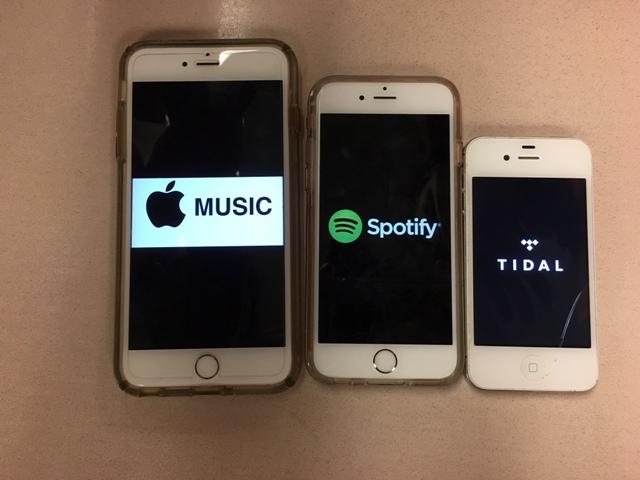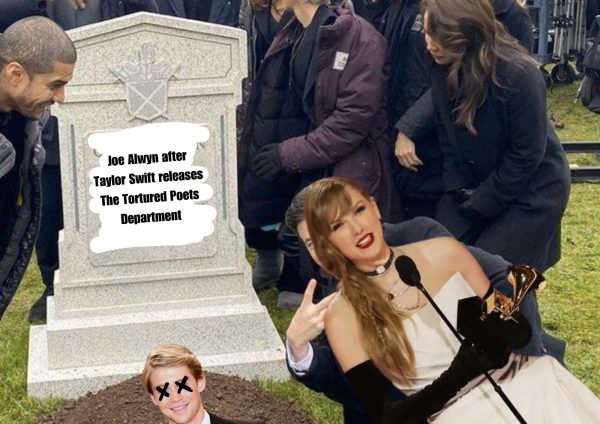Exclusive Albums: Tidal and Apple v. The People
Recently, artists have withheld albums from the masses by exclusively releasing them on platforms like Tidal and Apple Music. This has led to a massive commentary worldwide about how this could affect the future of the music industry.
September 19, 2016
Why should anyone care about exclusive album releases? Simply put, they are an important issue because the nature of these exclusive releases is to make more money. Greed is fueling the music industry and even Kanye West has stated, “I need Tim Cook, Jay Z, Dez, Jimmy, Larry, me and Drake Scooter on the phone or in a room this week,” speaking of exclusive releases and specifically calling Apple to “give Jay his money” and purchase Tidal. An odd move from Kanye considering how he himself has released his own album as an exclusive on Tidal Music. However, Kanye’s Twitter confrontation led to murmurs that have burst into full shouts and screams for reform and change after, most recently, Frank Ocean released his extremely highly-anticipated sophomore album and video accompaniment. “Blonde” and “Endless”, respectively, were released on Apple Music on Aug. 18 and 20, 2016 with no voiced plans of expansion from the platform.
Tidal Music was launched on March 30, 2015 to almost universal dislike from critics and artists. The service was meant to be owned and operated by artists, for artists but has since become more of a headache than a game changer. Apple Music launched on June 30, 2015 and has outperformed Tidal in number of subscribers, which could be attributed to the offer of a free trial. Spotify, however, has been available since Oct. 7, 2008 and has always offered free usage.
This entire issue does not just affect these music industry heads, they affect the fans as well, probably even more so. As of Aug. 2016, Tidal does not offer a free trial and has plans ranging from $10 to $20. Apple Music offers the first three months of use for free, and then charges $10 per month after that trial expires. Spotify, however, is the only advocate for the people, being completely 100% free to anyone, with the option to pay $10 for a premium service. As of June 2016, Spotify has 100 million+ subscribers (39 million of which pay for premium). Following along, Apple Music has 15 million paying subscribers and Tidal is at the bottom with 4.2 million paying subscribers.
Tidal is one of the most despised music streaming platforms, followed closely by Apple Music (however, there looks to be a nice overhaul coming with iOS 10 at least for user interface). Beginning at the end of 2015 with the pseudo-exclusive release of Adele’s “25,” which was not released to Spotify or Tidal, all singles from said album have subsequently been released onto Spotify. This has become a trend in 2016, kicking off with Rihanna’s highly-anticipated eighth studio album “Anti” being exclusively released onto Tidal on Jan. 28 and a release onto Spotify and the iTunes Store a week later. While infuriating fans who could not afford to purchase the album, Tidal did something completely out of character: they offered free downloads of the album to subscribers and non-subscribers alike, although the number of downloads was finite and those who were not as quick were left feeling cheated.
After this, Kanye West, Drake, Beyoncé and most recently Frank Ocean all released new albums that were exclusives. Kanye and Beyoncé released their albums on Tidal, with Kanye releasing his opus “The Life Of Pablo” onto Spotify in April of 2016 – something Beyoncé has yet to do. However, “Lemonade” was released onto the iTunes Store the day after it became available on Tidal. Drake and Frank Ocean have released their new albums on Apple Music. However, Drake only kept his album “Views” exclusive for one week before wide release and Frank is holding onto his critically acclaimed sophomore album “Blonde” for the foreseeable future.
With a fight on the horizon between the leaders of the music industry and the fans, the tension is brewing more than ever before. The industry simply wants money and the fans simply want their music, causing a standstill that will have to be resolved before artists and fans can thrive. Are exclusive albums creating a rift between consumers and creators? Originally, the answer would have been an opinion, but after the multiple big-name exclusive albums of 2016 alone, the answer is a resounding “yes.”














